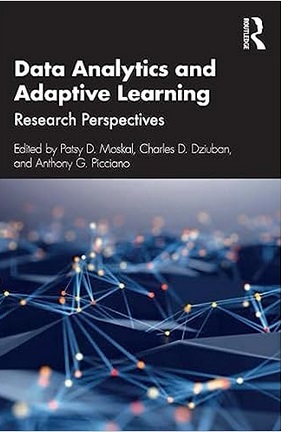
Dear Commons Community,
I watched the first Republican debate last night and came away less than enthused. Several candidates namely Vivek Ramaswamy, Nicki Haley, Mike Pence, and Chris Christie had considerable air time. The audience was disrespectful at times and moderators were not up to controlling it. Florida Governor Ron DeSantis, who has been ahead of the others on the stage in the polls, needed a big breakout moment to prove he was still Trump’s number one challenger. That moment did not happen.
The candidates piled on Ramaswamy, the 38-year-old entrepreneur and rich outsider who’s been steadily building momentum, suggesting his rivals may view the millennial upstart as a bigger threat than Florida’s governor. D eSantis, who appeared stiff but confident at center stage, dodged questions on the six-week abortion ban he signed into law earlier this year and the Jan. 6, 2021, attack on the U.S. Capitol.
His rivals attempted to hold his feet to the flames over whether former Vice President Mike Pence “did the right thing” on Jan. 6 when he refused to give in to then-President Donald Trump’s demands that he not certify the electoral vote for Joe Biden — one of the surprisingly few times that Trump, the clear front-runner for the 2024 Republican presidential nomination, actually came up in the course of the debate.
“The American people deserve to know whether everyone on this stage agrees that I kept my oath to the Constitution,” Pence said, over crosstalk and applause from the audience. “There’s no more important duty, so answer the question.”
“Mike did his duty,” DeSantis finally admitted. “I got no beef with him.”
That line — neither a glowing endorsement of Pence nor a significant show of political courage from DeSantis — could go down as one of his most memorable from a debate.
Below are several key takeaways courtesy of The Huffington Post.
Tony
——————————————————
Nikki Haley shoots her shot.
Former South Carolina Gov. Nikki Haley launched her campaign before anyone else on the debate stage, with arguably the least to show for it.
That changed when Haley, who was U.N. ambassador during Trump’s administration, got to show off her foreign policy chops against Ramaswamy. Haley challenged Ramaswamy on his controversial position that Russia be given some control over Ukraine in order to end the Russia-Ukraine war and cleave Russia away from China. Ramaswamy argues that a military alliance between Russia and China is a bigger threat to U.S. interests than Russia’s actions in Ukraine, a position that Haley strongly disputed.
Haley hammered Ramaswamy over Ukraine, speaking over him and refusing to back down. The exchange showed that Haley’s talk of toughness wasn’t just bluster. She called Ramaswamy’s views on the war dangerous, underscoring his lack of experience and controversial policy ideas.
“You are choosing a murderer over a pro-American country,” Haley said, referring to Russian President Vladimir Putin. “You would make America less safe. You have no foreign policy experience, and it shows.”
The Major Attitude Toward Trump? Ambivalence.
When the moderators pressed the eight candidates on whether they would support Trump as the nominee if he is convicted of criminal charges, all the contenders except Christie and former Arkansas Gov. Asa Hutchinson raised their hands. (Christie appeared to raise his hand but then clarified that he was only shaking his finger in disapproval.)
But more of the candidates broke with Trump on the question of Pence’s conduct on Jan. 6. Backing Pence over Trump clearly implies Trump’s contention that Pence could have overturned the 2020 election results but would not ― an idea that famously led Jan. 6 rioters to chant for Pence’s hanging ― was wrong.
Christie, predictably, led the way. “Mike Pence stood for the Constitution, and he deserves not grudging credit. He deserves our thanks as Americans for putting his oath of office and the Constitution of the United States before personal, political and unfair pressure.”
Christie’s comments, which concluded with a call to reject Trump this time around, elicited some boos but also a louder chorus of cheers.
Haley, Scott, and Burgum all had no trouble answering in the affirmative when asked about Pence’s behavior, though they weren’t necessarily eager to dwell on it.
“Absolutely — he did the right thing,” Scott responded.
“I do think that Vice President Pence did the right thing, and I do think that we need to give him credit for that,” Haley said.
“Mike Pence did the right thing on Jan. 6,” Burgum offered.
DeSantis showed the most reluctance to take a position. He initially responded by attacking the question as irrelevant. “This election is not about Jan. 6 of 2021,” DeSantis said. “It’s about Jan. 20 of 2025, when the next president is going to take office.”
But the moderators, with Pence’s help, persisted.
“I think the American people deserve to know whether everyone on this stage agrees that I kept my oath to the Constitution that day,” Pence said to loud cheers.
Forced to weigh in, DeSantis briefly expressed approval for Pence’s actions before launching into another tirade about how the line of questioning helps Democrats.
“Mike did his duty. I got no beef with him.”
– Gov. Ron DeSantis on Mike Pence’s actions on Jan. 6, 2021
“Mike did his duty. I got no beef with him,” he said.
In Haley’s response to the question about Pence, by contrast, she chose to speak unprompted about Trump’s weakness as a general election candidate, even as she maintained that it should be up to the voters, not the courts.
“We have to look at the fact that three-quarters of Americans don’t want a rematch between Trump and Biden,” she said. “And we have to face the fact that Trump is the most disliked politician in America. We can’t win a general election that way.”
Joe Biden Emerged Relatively Unscathed.
All eight of the Republican contenders on the debate stage are hoping to oust President Joe Biden, but you could be forgiven for temporarily forgetting that while watching the debate. The GOP hopefuls were so busy blasting each other’s conservative credentials that attacking Biden became a relative afterthought.
Early on in the debate, DeSantis lit into “Bidenomics,” a term Biden has adopted to describe his economic vision for the country.
Arresting the country’s decline, DeSantis argued, “starts with understanding we must reverse Bidenomics so that middle-class families have a chance to succeed again.”
“We cannot succeed as a country if you are working hard and can’t afford groceries, a car or a new home while Hunter Biden can make hundreds of thousands of dollars on lousy paintings,” DeSantis added. “That is wrong.”
But Haley insisted that Republicans are every bit to blame for the country’s inflation problem and growing debt.
“Donald Trump added $8 trillion to our debt,” she said. “And our kids are never going to forgive us for this.”
Biden clipped the video of her remarks and posted it approvingly on X, the social media app formerly known as Twitter. “What she said,” Biden’s campaign account wrote.
After admitting that she believes climate change is real, Haley did rip Biden for funding the development of renewable energy, claiming that electric vehicle battery production is a boon to mega-polluting China. “That’s not helping the environment. You’re putting money in China’s pocket. And Biden did that.”
DeSantis, for his part, blasted Biden’s response to the mass-fatality wildfire in Maui, Hawaii. “Biden was on the beach while those people were suffering,” DeSantis said. “He was asked about it, he said, ‘No comment.’ Are you kidding me?”
Finally, toward the end of the debate, some Republican contenders also suggested that Biden’s age should disqualify him from the presidency. But the relative absence of Biden’s name from the debate, along with the right-wing positions adopted by the candidates, was enough for the Biden campaign to declare victory.
“No one on stage ‘won’ tonight’s debate,” Vice President Kamala Harris said in a post-debate statement. “Instead, the American people heard how much they stand to lose from an extremist agenda.”
Ramaswamy vs. Pence Summed Up The GOP’s Generational Divide.
The most telling back-and-forth between Ramaswamy and a rival came during a discussion of how to address violent crime and mental illness. Ramaswamy and Pence’s skirmish embodied a broader disagreement between pre-Trump conservatives like Pence, who emulate former President Ronald Reagan’s sunny optimism, and a mostly younger cohort of populists who see an ailing country mired in a “cultural civil war.”
Ramaswamy argued that in addition to hiring more cops and reopening mental institutions, a “national identity crisis” is driving people to severe mental illness and antisocial behavior.
“I say this as a member of my generation,” said Ramaswamy, a 38-year-old graduate of Yale Law School. “The problem in our country right now, the reason we have that mental health epidemic, is that people are so hungry for purpose and meaning at a time when family, faith, patriotism, hard work have all disappeared.
“What we really need is a tonal reset from the top, saying that, ‘This is what it means to be an American,’” he added. “Yes, we will stand for the rule of law. Yes, we will close the southern border, where criminals are coming in every day. And, yes, we will back law enforcement because we remember who we really are.”
Pence, who had earlier blasted Ramaswamy for his inexperience, interjected to accuse Ramaswamy of being down on the American people.
“We don’t have an identity crisis, Vivek. We’re not looking for a new national identity. The American people are the most faith-loving, idealistic, hard-working people the world has ever known. We just need government as good as our people.”
Ramaswamy responded by accusing Pence of being stuck in the antiquated paradigm championed by Reagan, for decades a saintly figure in modern conservatism. When Reagan ran for reelection in 1984, his campaign aired a famously optimistic television advertisement called “Morning in America.”
“You might have, some others like you on this stage might have, a ‘Morning in America’ speech,” Ramaswamy said. “It is not ‘Morning in America.’ We live in a dark moment. And we have to confront the fact that we’re an internal sort of cultural civil war.”
Although Pence was Trump’s running mate, his comments speak to his more traditional brand of U.S. conservatism. Prior to Trump’s election in 2016, it would have been virtually unthinkable for a major Republican presidential candidate to speak disparagingly about anything Reagan uttered. Pence’s type of conservative tends to focus on government spending and restricting abortion rights ― in other words, questions of policy.
Ramaswamy, by contrast, sees a country locked in a cultural battle for its soul. In fact, his dark depiction of the country called to mind Trump’s gloomy inaugural address.
Ramaswamy didn’t dismiss every aspect of Reagan’s legacy, however. Later on in the evening, Ramaswamy said he hoped to replicate Reagan’s 1980 “revolution” by building a “multi-ethnic working-class majority.”




















